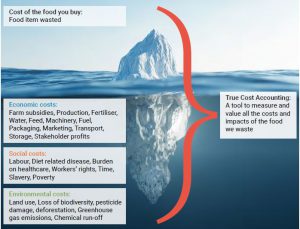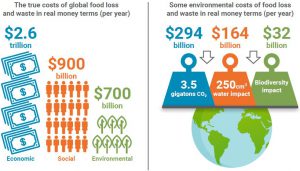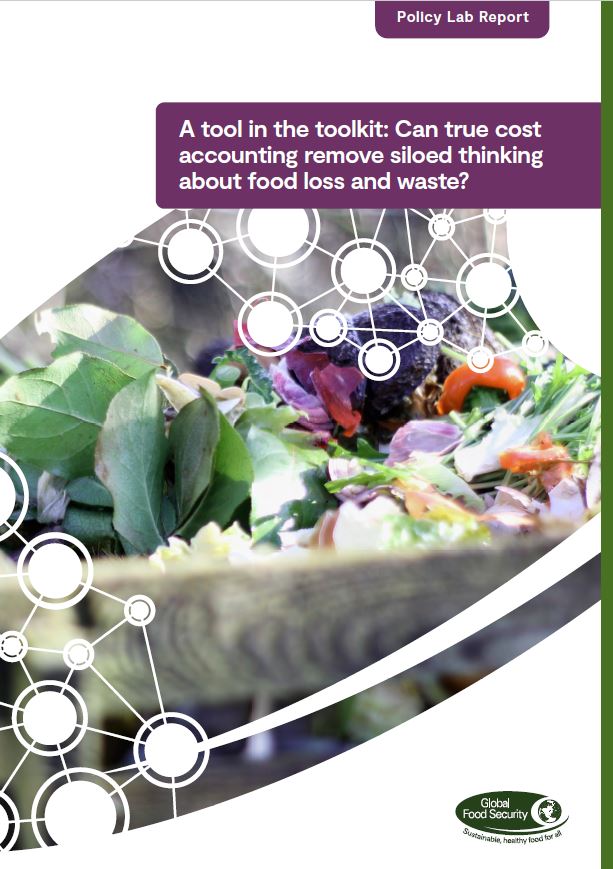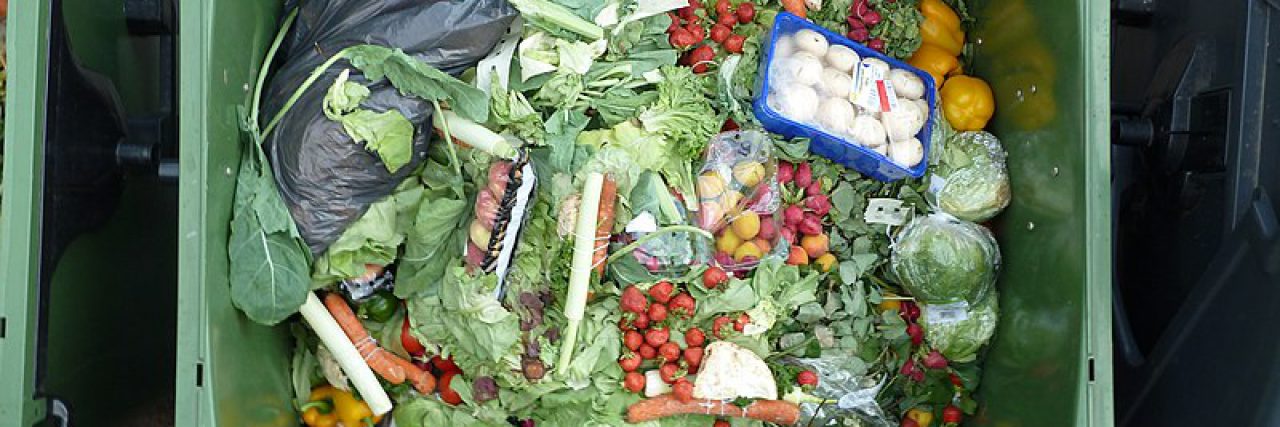The winners of the Global Food Security programme (GFS) Policy Lab competition have released their policy recommendations and report: A tool in the toolkit: Can True Cost Accounting remove siloed thinking about food loss and waste?
Early Career Researchers from a variety of disciplines across the breadth of UK Research and Innovation (UKRI) have worked together over the past 9 months to establish evidence-based policy recommendations to reduce the food we waste throughout our food system, tackling the staggering 10% of global greenhouse gas emissions that arise from food loss and food waste.

The report explores if the tool of True Cost Accounting (TCA) could be used to reduce the huge amounts of food loss and waste that happens at every stage of our food system. Producing, consuming and wasting food generates impacts that cost our society, but these costs are not normally included in the price of food we buy. However “we are paying for this damage in hidden ways” explains an author of the report, Justine Pearce (Royal Veterinary College), “currently, for every £1 paid directly for food, we incur an additional £1 cost from hidden external costs“. One example of this is how the price of high-fat and high-sugar foods do not include the costs of running public health campaigns, or the price of meat does not include the costs of dealing with environmental impacts from livestock farming.
Food loss and food waste have a surprisingly large impact on our society; globally over a third of the food produced for human consumption is lost or wasted each year. If food loss and waste were represented as a country, it would be the third largest emitter of greenhouse gasses, causing 10% of our global emissions. This wasted food also represents wasted fertilizers, pesticides and human effort, unnecessary use of farming land, transportation and consumer money. It is estimated that the economic costs of food loss and waste are $700 billion a year, and social costs $900 billion a year.

The early career researchers propose six policy recommendations and changes to practices that could help meet our net zero goals. They shared their findings and evidence-based policy recommendations directly to the government partners of the Global Food Security programme and also in the Green Zone of the United Nations COP26 Climate Change conference last November: “COP26 [was] an urgent opportunity to get countries to decrease their greenhouse gases” author of the report Siobhan Maderson (Aberystwyth University) explains “and decreasing food loss and waste is a key part of that.”
In the report the Early Career Researcher authors identify TCA as a way to minimise the mismatch between those who create societal costs, and those who pay for them. TCA can also be a tool to signal to consumers the social and environmental footprints of different food items and empowering them to make choices to minimise food loss and waste; “we believe more work is needed to create a database linking relevant schemes and metrics… potentially providing an effective holistic and simple labelling system for consumers.” shares report author Miranda Burke (Lancaster University). Other recommendations they identify in their report are for mandatory reporting of the food lost and wasted from different stakeholders, with binding targets to decrease this each year, “because what gets measured, gets managed” explained an author Mehroosh Tak (Royal Veterinary College).
Report authors:
- Bernd Bonfert (Cardiff University)
- Miranda Burke (Lancaster University)
- Aoife Caffrey (Ulster University)
- Siobhan Maderson (Aberystwyth University)
- Amy Molotoks (Stockholm Environment Institute, University of York)
- Justine Pearce (Royal Veterinary College)
- Mehroosh Tak (Royal Veterinary College)

A tool in the toolkit: Can true cost accounting remove siloed thinking about food loss and waste?
This Think Piece explores the social, economic and environmental costs of food loss and waste. The report sets out policy recommendations to reduce the food that is wasted throughout the food system based around the principles of True Cost Accounting.
This work was funded by the Global Food Security (GFS) programme as part of the GFS Policy Lab, in which Early Career Researchers compete to write a policy-facing report for the programme.
(You can view PDF documents by downloading a PDF reader. We recommend using Google Chrome or Mozilla Firefox web browsers.)
Watch a summary of the report released for COP26:


